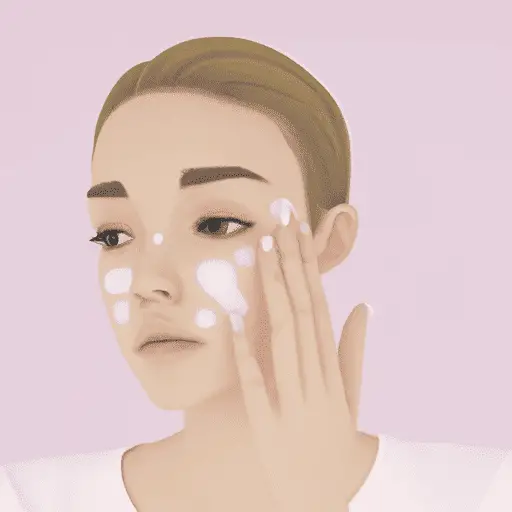Preventable Summer Skin Concerns
-
Table of Contents
- Preventable Summer Skin Concerns
- Key Takeaways
- Introduction: The Impact of Summer on Skin Health
- The Dangers of Sun Exposure
- Preventive Measures for Summer Skin Concerns
- Recognizing and Treating Skin Damage
- Special Considerations for Certain Skin Types
- FAQ Section: Common Questions About Summer Skin Concerns
- 1. What is the best type of sunscreen to use?
- 2. How can I treat a sunburn?
- 3. Can I still get sunburned on a cloudy day?
- 4. How often should I have my skin checked?
- 5. Can tanning beds be a safer alternative to sunbathing?
- Conclusion: Protecting Your Skin This Summer
- Review of Key Takeaways
Preventable Summer Skin Concerns

[youtubomatic_search]
Key Takeaways
- Exposure to the sun can lead to various skin concerns, including sunburn, premature aging, and skin cancer.
- Preventive measures such as using sunscreen, wearing protective clothing, and staying hydrated can help protect the skin.
- Recognizing the signs of skin damage and seeking early treatment can prevent long-term complications.
- People with certain skin types and conditions may be more susceptible to summer skin concerns and should take extra precautions.
- Regular skin checks and consultations with a dermatologist can help detect and manage skin concerns early.
Introduction: The Impact of Summer on Skin Health
Summer is a time for outdoor activities and soaking up the sun. However, increased exposure to the sun’s ultraviolet (UV) rays can lead to a range of skin concerns. From sunburn and heat rash to premature aging and skin cancer, the risks are real and significant. This article explores these preventable summer skin concerns and provides practical tips for maintaining healthy skin during the summer months.
The Dangers of Sun Exposure
Excessive sun exposure is the leading cause of skin damage. According to the Skin Cancer Foundation, more than 90% of skin aging is caused by the sun. Moreover, the American Academy of Dermatology reports that one in five Americans will develop skin cancer in their lifetime, with the majority of cases being attributable to UV exposure.
Preventive Measures for Summer Skin Concerns
Fortunately, there are several preventive measures that can protect the skin from summer-related damage. These include using a broad-spectrum sunscreen with an SPF of 30 or higher, wearing protective clothing such as wide-brimmed hats and long-sleeved shirts, and staying hydrated to maintain skin elasticity. Additionally, avoiding the sun during peak hours (10 a.m. to 4 p.m.) can significantly reduce UV exposure.
Recognizing and Treating Skin Damage
Early detection and treatment of skin damage can prevent long-term complications. Signs of skin damage include redness, swelling, pain, blisters, and peeling. If these symptoms occur, it’s important to seek medical attention. Treatment may involve over-the-counter remedies, prescription medications, or in severe cases, surgical procedures.
Special Considerations for Certain Skin Types
People with fair skin, a history of sunburn, or certain skin conditions such as rosacea or eczema may be more susceptible to summer skin concerns. These individuals should take extra precautions, such as using a higher SPF sunscreen, seeking shade whenever possible, and consulting with a dermatologist for personalized advice.
FAQ Section: Common Questions About Summer Skin Concerns
1. What is the best type of sunscreen to use?
A broad-spectrum sunscreen that protects against both UVA and UVB rays is recommended. Choose a product with an SPF of 30 or higher and reapply every two hours or after swimming or sweating.
2. How can I treat a sunburn?
Cool compresses, aloe vera, and over-the-counter pain relievers can help soothe sunburn. If blisters form, seek medical attention.
3. Can I still get sunburned on a cloudy day?
Yes, up to 80% of the sun’s UV rays can penetrate clouds, according to the American Academy of Dermatology.
4. How often should I have my skin checked?
It’s recommended to have a professional skin check once a year. However, if you have a history of skin cancer or notice any changes in your skin, you should see a dermatologist sooner.
5. Can tanning beds be a safer alternative to sunbathing?
No, tanning beds emit UV rays that can cause skin damage and increase the risk of skin cancer. The World Health Organization classifies tanning beds as a Group 1 carcinogen, the same category as tobacco and asbestos.
Conclusion: Protecting Your Skin This Summer
While summer brings plenty of opportunities for outdoor fun, it also presents significant risks to skin health. By understanding these risks and taking preventive measures, you can enjoy the summer while keeping your skin healthy and radiant. Remember, the key to preventing summer skin concerns is protection, early detection, and prompt treatment.
Review of Key Takeaways
- Excessive sun exposure can lead to a range of skin concerns, but these can be prevented with proper protection and care.
- Using sunscreen, wearing protective clothing, and staying hydrated are essential preventive measures.
- Early detection and treatment of skin damage can prevent long-term complications.
- People with certain skin types and conditions may need to take extra precautions during the summer.
- Regular skin checks and consultations with a dermatologist can help manage skin health effectively.
[youtubomatic_search]


